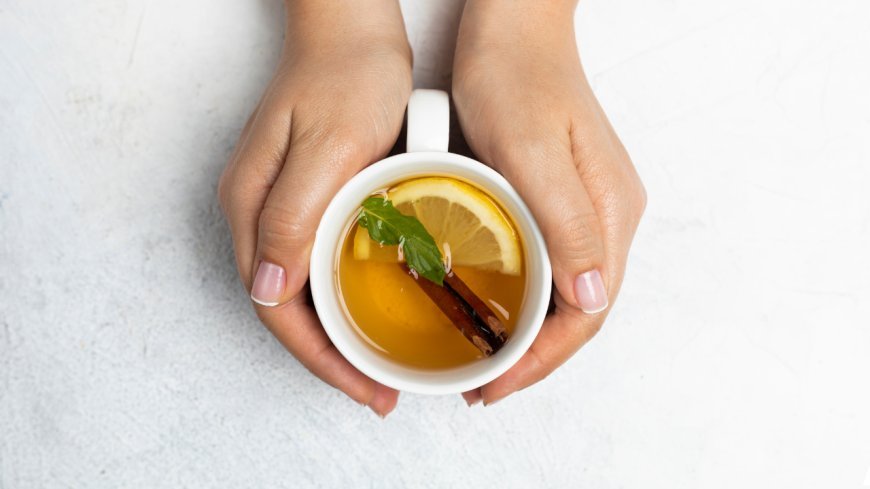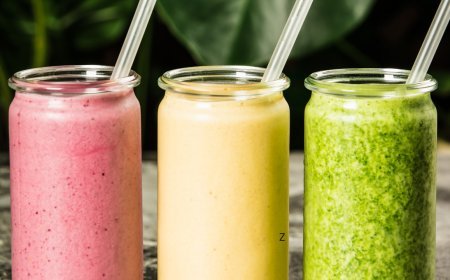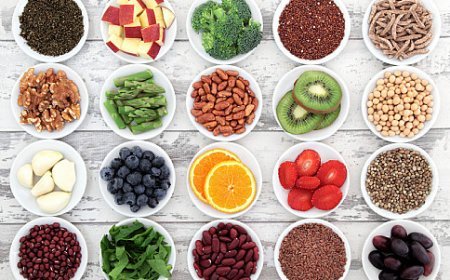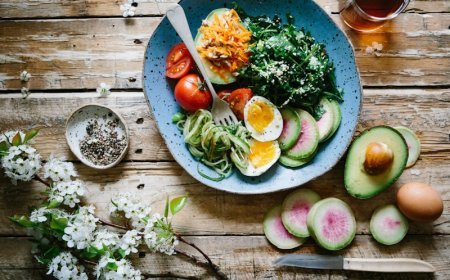When You Drink Herbal Tea Before Bed, This Is What Happens to Your Sleep
Discover how sipping herbal tea before bed can transform your sleep quality. This article explores the science behind calming herbs, their unexpected benefits, and practical tips for incorporating them into your nightly routine, along with budget-friendly options to suit any lifestyle.

Picture this: you're winding down after a long day, curled up with a warm mug of herbal tea. The soothing aroma and gentle warmth seem to melt your stress away, setting the stage for a restful night. Herbal teas, long celebrated in wellness circles, are more than just a comforting ritual—they’re a natural way to enhance sleep quality. Whether it’s chamomile, lavender, or valerian root, these teas have been used for centuries to promote relaxation and prepare the body for slumber. But what exactly happens when you make herbal tea a part of your bedtime routine? Let’s dive into the science and benefits behind this cozy practice.
The Science: How Herbs Like Chamomile or Lavender Calm the Nervous System
Herbal teas work their magic through bioactive compounds that interact with your body’s nervous system. Chamomile, for instance, contains apigenin, a flavonoid that binds to receptors in the brain, promoting a mild sedative effect. Studies suggest that chamomile can reduce symptoms of insomnia and improve sleep latency—the time it takes to fall asleep. Lavender, another popular choice, has linalool, a compound known for its calming properties, which can lower heart rate and reduce anxiety by influencing the parasympathetic nervous system. Valerian root, often blended into sleep teas, increases levels of gamma-aminobutyric acid (GABA), a neurotransmitter that helps quiet brain activity. These herbs don’t just feel relaxing—they actively signal your body to slow down and prepare for rest.
Surprising Benefits: Deeper Sleep, Less Anxiety, Better Digestion
Drinking herbal tea before bed does more than help you doze off. Here are some unexpected perks:
-
Deeper Sleep: Teas like chamomile and passionflower can enhance slow-wave sleep, the restorative phase that leaves you feeling refreshed. Research shows that regular consumption may improve overall sleep quality over time.
-
Reduced Anxiety: The calming effects of herbs like lemon balm or lavender can lower cortisol levels, easing nighttime anxiety that often keeps you tossing and turning.
-
Better Digestion: Peppermint or fennel teas can soothe the digestive system, preventing discomfort that might disrupt sleep. A settled stomach means fewer interruptions during the night.
These benefits compound over time, turning a simple cup of tea into a powerful tool for holistic wellness.
Practical Tips: Best Teas to Try, Brewing Tips, and Bedtime Routines
Ready to sip your way to better sleep? Here’s how to make the most of herbal teas:
-
Best Teas to Try:
-
Chamomile: A classic for relaxation and mild sedation.
-
Lavender: Perfect for reducing stress and promoting calm.
-
Valerian Root: Ideal for those struggling with insomnia (blend with milder herbs to improve taste).
-
Passionflower: Great for quieting an overactive mind.
-
Lemon Balm: A gentle, citrusy option for easing anxiety.
-
-
Brewing Tips:
-
Use 1–2 teaspoons of loose tea or one tea bag per 8 ounces of water.
-
Steep for 5–10 minutes in hot (not boiling) water to preserve delicate flavors and compounds.
-
Avoid adding sugar, which can counteract relaxation; try a touch of honey if needed.
-
-
Bedtime Routine:
-
Sip your tea 30–60 minutes before bed to allow its effects to kick in.
-
Pair with calming activities like reading or gentle stretching to enhance relaxation.
-
Keep your sleep environment cool, dark, and quiet to maximize the tea’s benefits.
-
Consistency is key—make herbal tea a nightly habit for the best results.
Budget Hack: Affordable Teas vs. Pricey Blends
You don’t need to splurge on boutique blends to enjoy the benefits of herbal tea. Affordable options like store-brand chamomile or peppermint teas (often under $5 for 20 bags) work just as well as premium brands. Look for single-ingredient teas to avoid fillers or artificial flavors. If you’re feeling adventurous, buy loose herbs in bulk from local markets or online retailers—chamomile flowers or peppermint leaves are often cheaper per ounce and let you customize blends. For example, a 4-ounce bag of loose chamomile can cost as little as $8 and last for months. Compare that to a $15 box of 16 blended tea bags, and the savings add up without sacrificing quality.
Sip Your Way to Sweeter Dreams
Herbal tea isn’t just a warm, comforting drink—it’s a science-backed way to improve your sleep and overall well-being. From calming your nervous system to easing anxiety and digestion, the benefits of a nightly cup are hard to ignore. With affordable options and simple brewing tips, anyone can make this practice a part of their bedtime routine. So, the next time you’re ready to wind down, brew a mug of chamomile or lavender, take a deep breath, and let the path to sweeter dreams begin.
What's Your Reaction?
 Like
0
Like
0
 Dislike
0
Dislike
0
 Love
0
Love
0
 Funny
0
Funny
0
 Angry
0
Angry
0
 Sad
0
Sad
0
 Wow
0
Wow
0
































